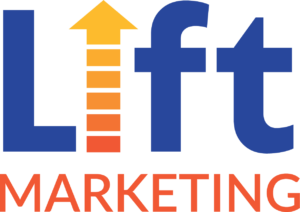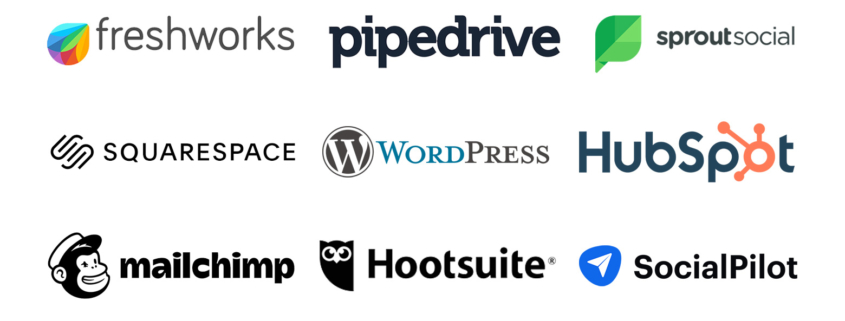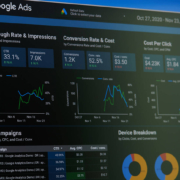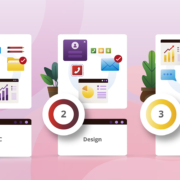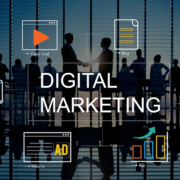MarTech Stack Review: Do You Use the Right Tools to Achieve Digital Marketing Success?
Tech is always growing, always changing, and as a result, so are digital marketing strategies.
To make sure your marketing campaigns are performing well, you need to make sure your MarTech stack is stacked with the most up-to-date and effective marketing tools as possible.
What Is a MarTech Stack?
MarTech means, simply put, marketing technology. A MarTech stack is a name given to the group of technologies that professional marketers use in their marketing efforts. These technologies usually come from a wide range of vendors rather than one specific company or software manufacturer.
While it would be great if you could one-and-done your marketing technology, the diverse range of tech available and the marketing needs of various businesses means that it’s better, overall, to customize what technology your marketing team uses.
Why Optimization of Your Marketing Technology Stack Is Important
Marketing technology is used to help automate and optimize digital marketing campaigns and strategies, manage customer journeys, and analyze data. All of this can help you save money and time on staffing.
However, it can also be costly. The amount of money companies are spending on MarTech stacks is on the rise, reaching well above $20 billion spent annually throughout the United States. In fact, many companies are now spending more on marketing technology than they are staff.
But some MarTech stacks have blind spots where they aren’t covering all that they should, or businesses are paying for functions they don’t utilize, or could utilize with MarTech tools they’re already paying for elsewhere. Having so many silos of MarTech can be extra expensive if you’re accidentally paying for two management platforms when you could be paying for one.
Not only that but there’s a constant stream of new marketing technology that may be able to meet your business needs quicker, and cheaper. To guarantee campaign performance and the highest ROI, you need to be continuously reviewing your marketing operations and MarTech stacks.
Common Components of Marketing Tech Stacks
Most companies build their MarTech stacks to suit their needs, but there are common trends among many. Here are some of the most utilized types of tech employed by marketing leaders, and some of the top performing marketing platforms that provide these services.
Customer Relationship Management (CRM)
CRM technology helps streamline workflow in regards to managing your company’s relationships with customers. This kind of tech manages customer experiences throughout their life cycle with your brand.
CRM is good for lead generation and providing you with a customer data platform so that you can accurately see their stage in the sales pipeline and send the appropriate marketing material.
A good CRM marketing platform should provide email integrations and options for bulk outreach, automated sales triggers, and pipeline analysis and insights.
Some of the best customer relationship management tools available now are:
-
-
- HubSpot
- Salesforce
- Pipedrive
- Freshworks
- monday Sales
-
Hubspot offers a number of marketing automation tools and there’s a free option that will be especially helpful for small businesses or startups. Salesforce is called one of the most comprehensive CRM marketing platforms, but the starting price is higher monthly.
Pipedrive may be a great place to start if you’re newer to CRM marketing technology. Freshsales is especially effective for lead management, which is an area monday Sales struggles in, however, monday Sales has a free basic plan and is highly rated for team workflow and project management.
Social Media Management
If social media isn’t a part of your digital marketing strategy, it really needs to be. There are a ton of benefits to marketing your business on social media platforms such as increasing brand awareness and loyalty.
But social media marketing strategies aren’t as easy as just running your own page for fun. This is where social media management tools come in. They can help you schedule posts, analyze engagement with your posts, monitor mentions and do keyword research for not only your business, but your competitors as well.
Here are some of the best social media management tools out today:
-
-
- Sprout Social
- Hootsuite
- Buffer
- SocialPilot
-
Sprout has top notch analytics tools – but it is a little more pricey. Hootsuite has a more affordable basic plan that offers multiple integrations, but you won’t get advanced analytics without upgrading your plan.
If you have a tighter budget and want a social media management platform that is easier to use for a beginner, Buffer is a great place to start. SocialPilot is also a more affordable option, and a great way for those who are looking to market on TikTok.
Content Management Systems (CMS)
Y’all probably know by now that having a website is essential to a business’s success, right? In fact, 80% of sales happen now because of a company’s online presence.
That being said, building a website is hard. You’ve got to know how to code, to be able to service the site if it breaks down, and manage a server. It’s a lot to ask of anyone, let alone someone who’s already busy running a business.
That’s where a content management system comes in. CMS marketing technologies make building, publishing, and managing digital content easy for those who aren’t computer whizzes. This is especially helpful if content marketing is a part of your marketing activities and you regularly have to make digital posts, such as blogs or promotional landing pages.
If you’re looking for help creating a web presence, then these marketing platforms may be able to help:
-
-
- SquareSpace
- WordPress
- Wix
- Drupal
-
SquareSpace has a very easy-to-use dashboard and interface that allows you to place objects where they will be on the page, allowing for easy visualization of the final project. There are also several pricing options – some that integrate ecommerce sales directly into your site – and the platform provides you with real-time web analytics
WordPress is pretty intuitive to use even if you’re a beginner – and it’s one of the most popular and well-supported web development platforms out there which means there’s tons of integrations and plugins to explore. And, if you need help, loads of tutorials and responsive customer support.
Wix is affordable and extremely easy to use, but typically involves working in a template, so it doesn’t provide much of a customizable user experience. Drupal is free to use – but to build a well-rounded website, it can be costly, and it takes a lot of learning.
Search Engine Optimization Marketing Tools
SEO tools help you understand where your website falls on search engine results pages (SERPs) and do keyword research to help improve your ranking. Since SEO is such a key component of a businesses success, it makes sense that there is a plethora of MarTech providers in this area.
The great news is, many of these b2b marketers offer some of their services for free.
Here’s a rundown of some of the SEO marketing tools you may want to use in your marketing processes, and what they can do for your marketing team members:
-
-
- Google Search Console: learn which keywords you’re ranking for, and what errors exist on your website and more.
- Google Analytics: monitor and compare metrics about your website’s traffic, user engagement, and determine which of your marketing channels generates the most conversions.
- Ahrefs: Check your website’s authority ranking for free and compare it to your competitors.
- Check My Links: Crawl your website pages to make sure broken links aren’t holding your SEO back.
- HubSpot: Check your website’s performance for free, or purchase their paid MarTech tool to increase your website’s authority.
- Clearscope: Conduct keyword research and check your content’s keyword rating as you write it.
-
AdTech
AdTech is marketing technology that helps you buy digital ads and measure their success. The marketing technology landscape for AdTech includes platforms where advertisers meet with publishers to buy ad space, campaign trackers, and reporting databases that show the marketing initiatives metrics.
Some of the best AdTech marketing technologies for businesses right now are:
-
-
- Google Ads: Buy and track PPC ads that appear on Google’s SERPs.
- The Trade Desk: A self-service technology platform that allows sales teams to create, manage and track ads across multiple channels.
- Genius Monkey: Provides tracking and attribution, and only requires payment when customers engage with your ads.
- SemRush: This platform is great for monitoring your landing pages and ad performance, as well as monitoring your competitor’s performance.
-
Email Marketing Management Tools
Email is still a major player in generating revenue for businesses. And with automation tools, writing personalized emails to improve customer experience and engagement is easier than ever.
Email marketing technology allows for easy customer data management that segments your contacts into personalized lists based off of their previous behaviors and placement on the customer journey. You can set up triggered emails to send to customers when they make specific actions, or schedule bulk emails to send to specific groups.
Sometimes CRM platforms and email marketing platforms overlap – for instance, HubSpot and Salesforce both offer many email marketing management and CRM marketing tools. Additionally you could look into these platforms:
-
-
- Mailchimp
- ActiveCampaign
- MailerLite
- Constant Contact
- Klaviyo
-
Mailchimp is a very well-known brand, with a free version of its email marketing platform that allows you to store up to 2,000 contacts. It also comes with a variety of templates to use that makes it user-friendly for beginners.
MailerLite also comes with a free version, but it only comes with 1,000 contacts. Website and landing page builders are also available with this platform. ActiveCampaign comes with ecommerce integrations and SMS automation, but there’s no free option available and the basic plan costs quite a bit.
Constant Contact is one of the most frequently used email marketing platforms. There are hundreds of apps and integrations you can use with this platform. There’s a low price subscription for $12 that lets you have up to 500 contacts. Another pro here is its high deliverability rate.
Klaviyo is another extremely popular email marketing platform that gives you easy, centralized data on your customers. There’s also SMS integrations and mobile apps, as well as some of the smartest automation available.
Get the Most Out of Your Marketing Technologies
Knowing which marketing technologies to shuffle into your MarTech stack is a complicated task. You can feel like you’ve finally got it all worked out and then – BAM! – a new marketing automation tool hits the scene and you’ve got to reevaluate all over again.
There’s no shame in admitting it might be just a teensy bit overwhelming. And there’s no shame in reaching out to the professionals for help – our marketing team lives and breathes MarTech and digital strategies. Reach out to us today and we’ll get your MarTech stack straightened out.
